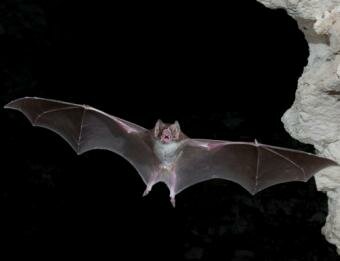A team of mathematical experts have said that 1729, which is also known as the Ramanujan-Hardy number, is linked to aspects of string theory and...

Wildlife experts and conservationists have warned that bats are facing extinction in India's Western Ghats due to increasing human activities and destruction of forests.
They said that several species of bats residing in India are finding it increasingly difficult to adjust with varying landscape resulting due to deforestation. They cites reasons including increased use of agricultural land and growing human population for the impact on bats. A team of experts from University of Leeds in Britain, Nature Conservation Foundation, Mysore and National Centre for Biological Sciences conducted a survey of different bats species in the southern Western Ghats in order to study the impact of plantation and rainforest fragmentation on them.
The study showed that some bat species can adjust with coffee plantations. Experts said that the reaming part of the forest and wildlife friendly agriculture can help save the bats from extinction. Professor, John Altringham, Leeds University said that Western Ghats are among the most biodiverse regions in the world and it is also densely populated. The modern development and land-use transformation have left just 6 per cent of the natural habitat. The experts used Geographic Information System (GIS) computer modelling to study association between different bat species
The study was published in the Biological Conservation.









